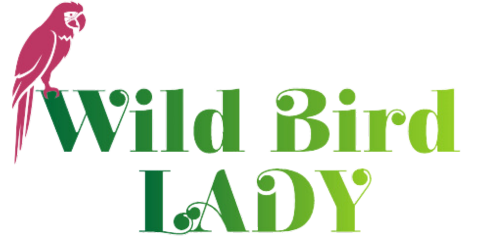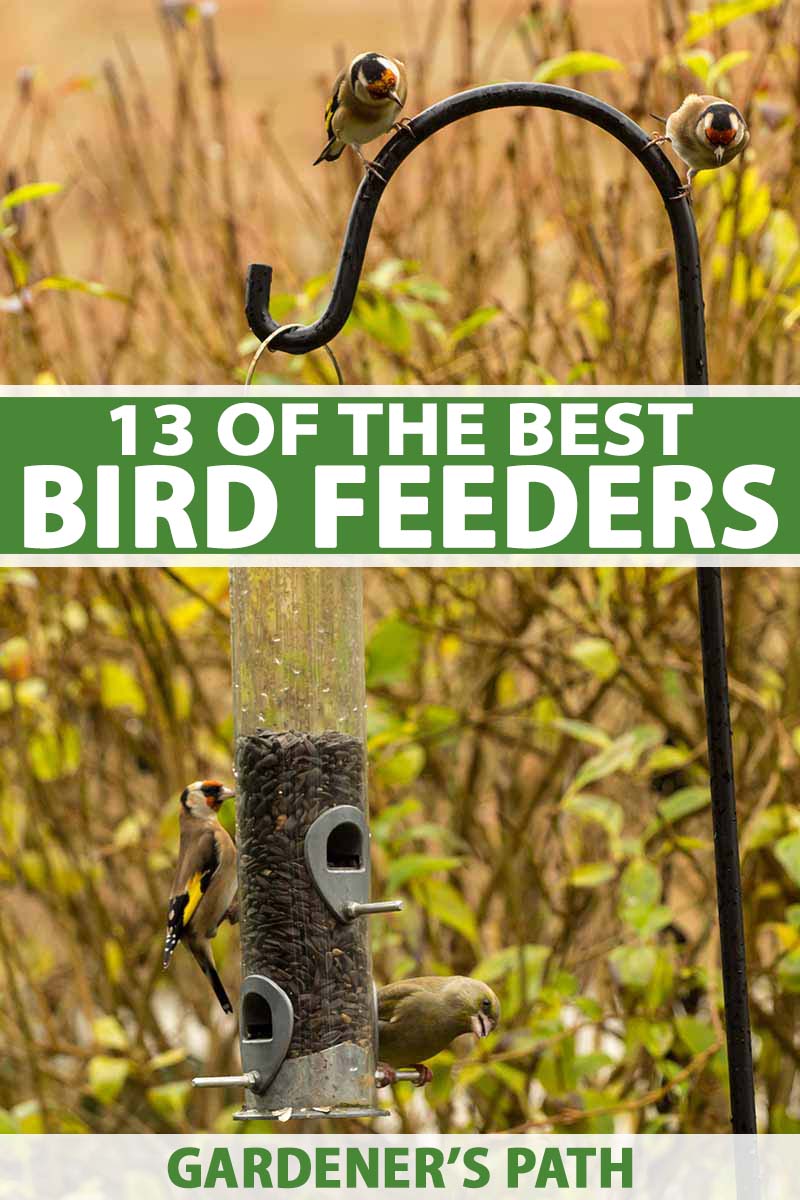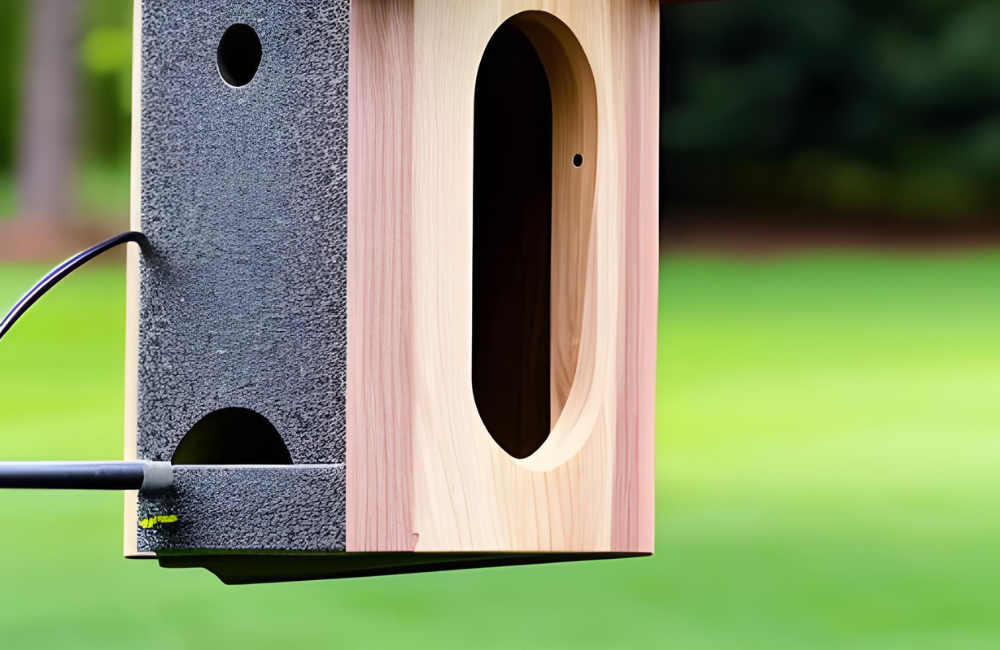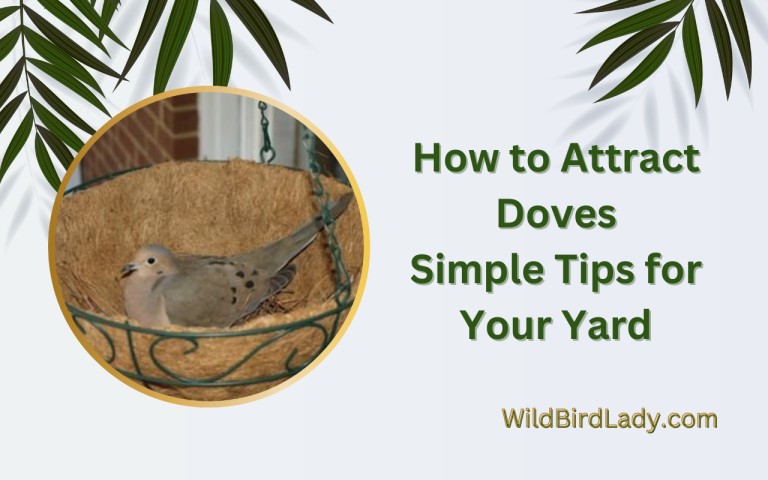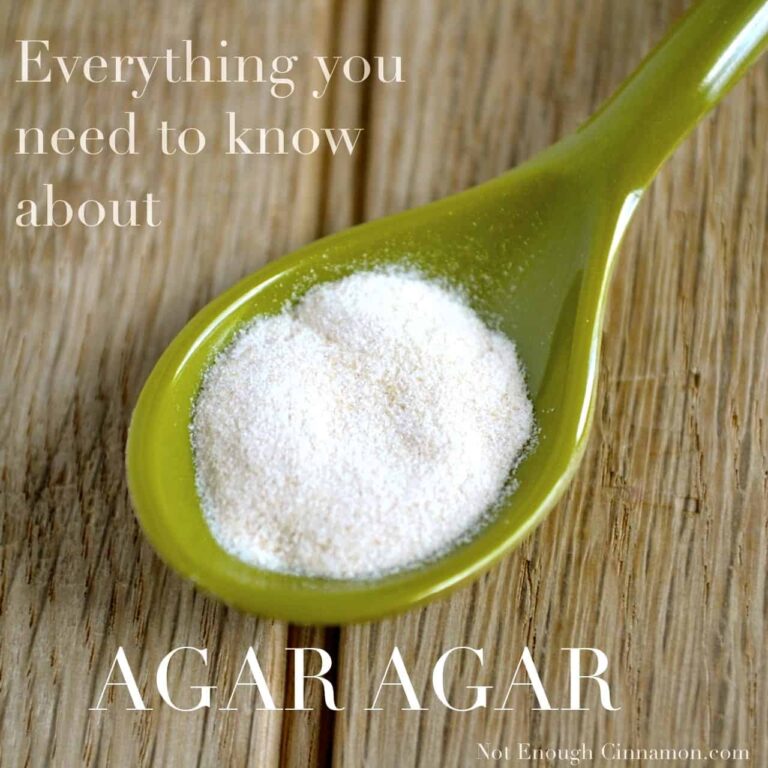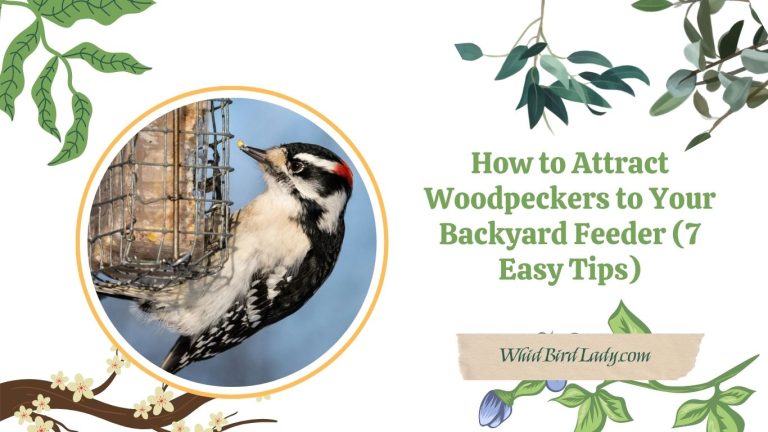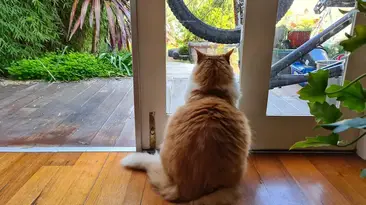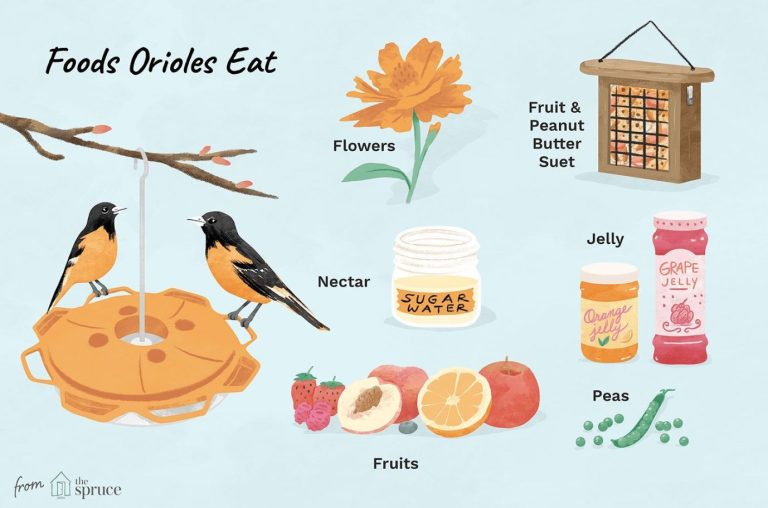Discover the Ultimate Guide to Choosing Between Birdhouse or Bird Feeder
If you want to attract birds to your backyard, put up a bird feeder. If you want to provide them with a place to nest, put up a birdhouse.
These two items serve different purposes and should not be confused. A birdhouse can provide a safe and secure haven for birds to raise their young, while a bird feeder is great for attracting birds to your backyard so you can enjoy their beautiful songs and vibrant colors.
There are pros and cons to each option, and it ultimately depends on what you want to achieve. For example, if you live in an urban area without many natural nesting places, a birdhouse could be a great addition to help support the local bird population. On the other hand, if you simply enjoy watching birds and want to attract them to your backyard, a bird feeder might be a better choice. In this guide, we’ll explore both options in more detail and provide some tips for choosing the right one for your needs.
Understanding Your Local Avian Species
Appreciating birds in your area is a lovely way to become more aware of the natural world and can also be an entertaining pastime. If you’re pondering whether to put up a bird feeder or birdhouse, understanding your local bird species is a crucial first step.
Differences Between Bird Species
Different birds have varying preferences for food, habitats, and nesting materials. Some birds in your area may even be attracted to specific types of bird feeders. Therefore, it is essential to distinguish between the various species of birds to ensure that your birdhouse and bird feeders are suitable for the local birds in your area.
Here are some unique characteristics that differentiate bird species:
- Size and color
- Beak shape and size
- Feather shape and texture
- Dietary habits
- Flight patterns and behaviors
Identification Of Bird Habitats and Preferences
Birds are found in nearly every habitat on Earth, and their preferences vary widely. Do your local birds like to perch in trees, bushes, or on the ground? Do they prefer a particular type of vegetation, such as grass, fruits, or nectar?
Here are some tips to identify the habitats and preferences of your local bird species:
- Observe their feeding habits and eating patterns
- Research which types of bird feeders and bird baths are preferred by specific bird species
- Record the flight patterns and behaviors of the birds around their habitats
Tips On How To Learn About Your Local Bird Species
To learn about your local bird species, it is crucial to invest time in researching and observing their natural behavior. Luckily, there are many ways to become better acquainted with the birds in your area.
Here are some suggestions to get started:
- Join online birdwatching communities to exchange knowledge and insights
- Read books and online resources on your local bird species and their behavior
- Visit local nature reserves or parks to see birds in their natural habitats
- Record your sightings and observations in a birdwatching journal
It is essential to understand your local bird species before deciding on whether to put up a birdhouse or bird feeder. By learning about their habits and preferences, you can create an inviting environment for birds and gain a deeper appreciation for these feathered friends.
Pros And Cons Of Birdhouses
Bird watching is one of the easiest and most rewarding hobbies that anyone can pursue. If you want to watch birds up close, you can either opt for a birdhouse or a bird feeder. In this simple guide, we will discuss the pros and cons of birdhouses for those who want to create a comfortable environment for different bird species.
Benefits Of Providing Birdhouses For Different Bird Species
Creating a comfortable environment for different bird species is not only enjoyable for bird enthusiasts, but it’s also beneficial for nature. If you are wondering why you should consider providing birdhouses for different bird species, here are some of the benefits:
- Birdhouses provide a suitable nesting site for birds that might not find a secure location otherwise.
- They help control pests such as mosquitoes and other insects that birds feed on.
- They protect birds from adverse weather conditions.
- Birdhouses attract a wide range of bird species to your property for bird watchers to enjoy.
Factors To Consider When Choosing A Birdhouse
Choosing the right birdhouse is essential to provide a comfortable environment for different bird species. Here are some factors you should consider before selecting a birdhouse:
- The size of the birdhouse should be proportional to the bird you want to attract.
- The entrance hole size should be appropriate for the bird species you aim to attract.
- The location of the birdhouse should be out of reach from predators and weather elements.
- The birdhouse should be easy to clean, with proper drainage to prevent mold growth.
Maintaining And Cleaning Birdhouses
The cleanliness of birdhouses is essential not only to maintain the hygiene of the birds but also to prevent diseases. Here are some tips on how to maintain and clean birdhouses:
- Clean birdhouses once or twice a year with appropriate disinfectants.
- Remove any waste, such as old nesting materials or unhatched eggs, to avoid attracting unwanted pests.
- Use a birdhouse that can be opened or contains easy-to-access parts to allow thorough cleaning.
Disadvantages Of Using Birdhouses
While birdhouses offer many benefits, there are some disadvantages to using them:
- Birdhouses can attract unwanted pests, such as squirrels, raccoons, and other predators.
- If not cleaned regularly, birdhouses can become breeding grounds for bacteria and fungi that can harm birds.
- Installing birdhouses in some areas can impact the bird’s natural habitat.
Providing birdhouses in your backyard can enhance the beauty of your property while providing a comfortable environment for different bird species. However, it’s crucial to consider the right factors when choosing and maintaining a birdhouse to ensure that birds remain safe and healthy.
Pros And Cons Of Bird Feeders
Bird watching is an enjoyable and exciting activity that not only benefits bird lovers but also helps wildlife. When it comes to attracting birds, people often face a dilemma regarding whether to put up a birdhouse or bird feeder. This simple guide aims to help you decide which one is best for you.
In this section, we will discuss the pros and cons of bird feeders.
Benefits Of Providing Bird Feeders For Different Bird Species
Providing bird feeders is an easy and effective way to attract birds to your backyard. Here are some benefits of using bird feeders for different bird species:
- Attracts a variety of birds: Bird feeders can attract a variety of bird species, including finches, sparrows, chickadees, and cardinals, among others.
- Provides essential nutrients: Bird feeders provide essential nutrients to birds, including protein, carbohydrates, and fats, which are crucial for their survival during harsh weather conditions.
- Helps in bird migration: Bird feeders can help birds during migration season by providing them with the necessary food and energy to continue their journey.
- Birds become acclimated: Bird feeders familiarize birds with your backyard, and they eventually make it their nesting ground by building their nests nearby.
Factors To Consider When Choosing A Bird Feeder
Choosing the right bird feeder can be daunting, given the numerous options available in the market. Here are some factors to consider:
- Type of bird feed: Different types of bird feeders cater to different bird species and feeding habits. Ensure that you choose the right feeder that suits the birds in your area.
- Location: The location of your bird feeder is vital. Place it at a safe distance, preferably near trees or shrubs, where birds can perch and rest after feeding.
- Feeder capacity: Consider the feeder’s capacity, depending on the bird species’ population in the area and how often you want to replenish it.
Maintaining And Cleaning Bird Feeders
Maintaining and cleaning your bird feeder is essential to prevent the spread of diseases, and to keep the feeder in good condition. Here are some tips:
- Clean the feeder regularly: Clean the feeder at least once a month to remove dirt and debris. Use a mild detergent and warm water to avoid harming the birds.
- Replace spoiled bird feed: Replace spoiled bird feed as it can attract mold, bacteria, and fungi that can harm the birds.
- Remove debris regularly: Remove debris such as leftover seeds and bird droppings, which can accumulate at the bottom of the feeder.
Disadvantages Of Using Bird Feeders
While bird feeders provide many advantages, they also have some disadvantages that you should consider:
- Birds become dependent: Birds can become dependent on bird feeders and may lose the ability to forage for food independently.
- Attracts predators: Bird feeders can attract predators, such as squirrels, raccoons, cats, and even hawks that may prey on birds.
- Spread of diseases: Bird feeders can spread birdborne diseases, which can pose a risk to other birds visiting the feeder.
Bird feeders are an excellent way to attract birds to your backyard, but you should consider the factors mentioned above before purchasing and installing one. Remember to clean and maintain the feeder regularly to keep the birds healthy and happy.
Making The Choice – How To Decide
Are you contemplating getting a birdhouse or bird feeder? You might want to consider a variety of factors such as location, budget, bird species, and personal preferences. Additionally, it is essential to understand your local climate and natural environment before making your final decision.
In this post, we will weigh the pros and cons of birdhouses and bird feeders, helping you make an informed decision.
Consideration Of Factors: Location, Budget, Bird Species, Personal Preferences
Here are some key factors to consider when deciding to put up a birdhouse or bird feeder:
- Location: Think about where you would like to place the birdhouse or bird feeder. Bird feeders tend to attract birds that prefer open areas, while birdhouses attract birds that prefer shade or cover. Choose a location that is convenient for refilling the feeder or cleaning the birdhouse.
- Budget: Bird feeders are generally more affordable than birdhouses as they do not require as much maintenance. Birdhouses, on the other hand, can last for years, and with proper care, can provide a home for generations of birds.
- Bird species: Be mindful of what type of bird you want to attract. Research the species of birds that live in your local area and choose the right birdhouse or bird feeder that will attract those birds.
- Personal preferences: Some people enjoy feeding birds, while others prefer watching them live in their natural habitat. Decide what you want and what you are willing to do to achieve it.
Importance Of Understanding Your Local Climate And Natural Environment
It is crucial to understand your local climate and natural environment before deciding between a birdhouse or bird feeder. Here are some things to consider:
- Weather: Harsh weather conditions such as snow, rain, or high winds can affect the longevity of both birdhouses and bird feeders. Protect your feeder or birdhouse from direct exposure to the elements.
- Predators: Local predators such as squirrels, cats, snakes, and birds of prey may attack your birdhouse or bird feeder. Take steps, such as installing baffles, to prevent these predators from accessing your feeder or birdhouse.
A Comparison Between Birdhouses And Bird Feeders
Here’s a breakdown of the pros and cons of birdhouses versus bird feeders:
Birdhouses:
- Pros: Provide a safe and cozy home for birds, encourages nesting behavior, and helps preserve the bird population in your area.
- Cons: Require more maintenance and cleaning, can take a while for birds to pick them as their home, and can attract unwanted insects.
Bird feeders:
- Pros: Attract a variety of birds, require little maintenance and cleaning, and provide a cheap and effective way to feed birds.
- Cons: Can be messy and attract unwanted pests such as squirrels or rodents.
Tips For Making Your Final Decision
Here are some final tips to help you make your choice:
- Identify the birds native to your area and their needs: Knowing what kind of birds you would like to attract will help you choose between a birdhouse or bird feeder.
- Consider the amount of time and money you can put into maintenance: Both birdhouses and bird feeders require different levels of care, so choose according to your availability.
- Try to make the outdoor space bird-friendly: Consider planting plants and shrubs that attract birds to make your garden a haven for them.
When choosing between a birdhouse or bird feeder, it is important to consider various factors such as location, budget, bird species, personal preferences, local climate, natural environment, and time and money commitments. Arming yourself with this information will help you make the right decision that fits your needs and budget.
Happy bird watching!
Frequently Asked Questions
What Birds Will Visit My Bird Feeder?
Different birds prefer different types of feeders and food. Common backyard bird feeder visitors include finches, sparrows, chickadees, and titmice. To attract a specific bird, research their feeding preferences.
How Do I Clean My Bird Feeder?
A dirty bird feeder can spread disease among birds. Clean your feeder by scrubbing with hot soapy water and taking it apart to get into hard-to-reach areas. Rinse thoroughly and let it dry before refilling with fresh food.
Where Should I Place My Birdhouse Or Feeder?
Place your birdhouse or feeder in a location that’s safe from predators, like cats. A sheltered area away from wind and rain is also ideal. Make sure to keep them out of direct sunlight.
How Often Should I Refill My Bird Feeder?
How often you need to refill your feeder depends on the size of the feeder, how much food it can hold, and how many birds are feeding from it. On average, a feeder should be refilled every one to three days.
What Type Of Food Should I Put In My Bird Feeder?
Different types of birds prefer different types of food. Common bird feeder foods include black oil sunflower seeds, thistle, millet, and peanuts. Avoid putting out food that’s moldy or spoiled.
Conclusion
At the end of the day, whether you should put up a birdhouse or a bird feeder depends on your personal preference and the type of birds you want to attract. If you enjoy watching birds’ nest, then a birdhouse may be the way to go.
On the other hand, if you like to see a variety of birds come to visit your yard, then a bird feeder can be a great option. Keep in mind that with a bird feeder, you will likely need to refill it regularly and keep it clean to prevent attracting unwanted pests.
Whichever option you choose, be sure to place it in a safe and secure location away from predators and harmful weather conditions. With a little bit of research and consideration, you can create a bird-friendly environment that both you and your feathered friends will enjoy.
